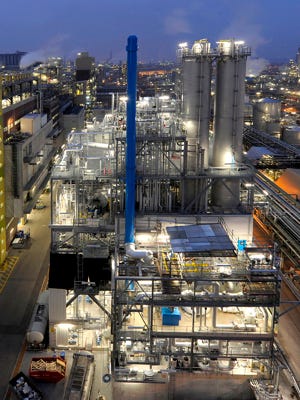BASF's expanded production site for its biodegradable Ecoflex plastics has started operations, boosting annual capacity by 60,000 tonnes from 14,000 to 74,000 tonnes/yr. In conjunction with this new capacity, BASF will also expand its compounding capabilities for its Ecovio product, which mixes Ecoflex with up to 75% renewable raw materials. BASF said the market for biodegradable and biobased plastics is currently growing by more than 20%/yr.
February 1, 2011
BASF's expanded production site for its biodegradable Ecoflex plastics has started operations, boosting annual capacity by 60,000 tonnes from 14,000 to 74,000 tonnes/yr. In conjunction with this new capacity, BASF will also expand its compounding capabilities for its Ecovio product, which mixes Ecoflex with up to 75% renewable raw materials. BASF said the market for biodegradable and biobased plastics is currently growing by more than 20%/yr.
Ecoflex has the properties of conventional polyethylene but is fully biodegradable under industrial composting conditions, satisfying
BASF's Ludwigshafen production site |
The expanded Ecovio and Ecoflex capacity is at BASF's site in Ludwigshafen, Germany. |
BASF Ecovio and Ecoflex materials in paper coating and stretch film applications. |
BASF Ecovio and Ecoflex materials in paper coating and stretch film applications. |
DIN EN 13432 standards, according to BASF. Typical applications for Ecovio and Ecoflex include shopping bags, organic waste bags, mulch films for agricultural applications, and food packaging. More recently, BASF has introduced Ecovio FS Paper, which is used to provide a biodegradable waterproof coating on the interior surfaces of paper cups and cardboard containers.
BASF says its Ecoflex F BX 7011, which can be used in film extrusion and extrusion coating, comes closer than any other biodegradable plastic to the processing properties of low-density (LD) and linear low-density (LLD) polyethylene. The company says the material requires no predrying but does recommend antiblock and slip additives.
Work on the additional capacity began in 2009, when BASF also undertook expansion projects at Ludwigshafen on its syngas facility, constructing a cyclododecanone production unit, in addition to boosting Ecoflex/Ecovio output.
About the Author(s)
You May Also Like



